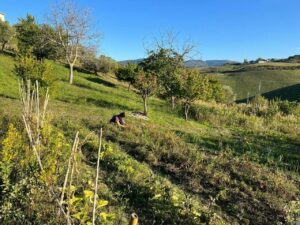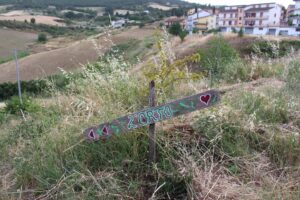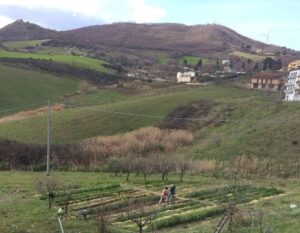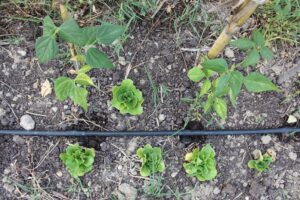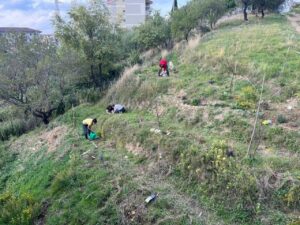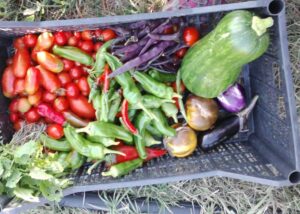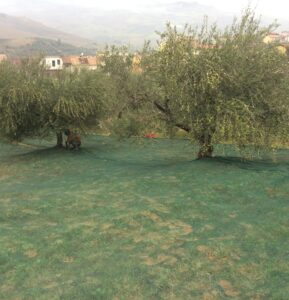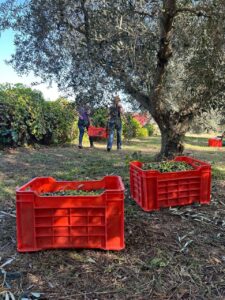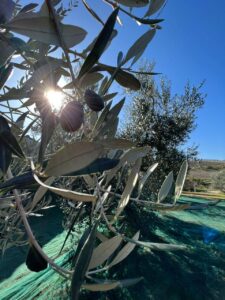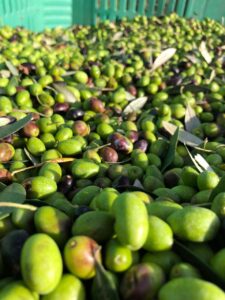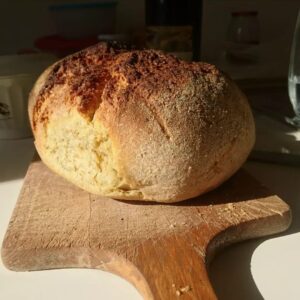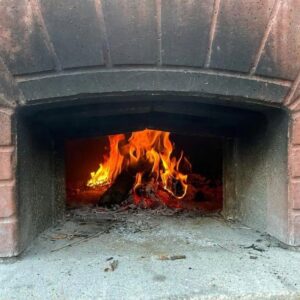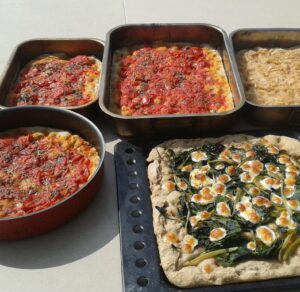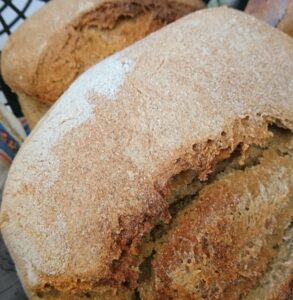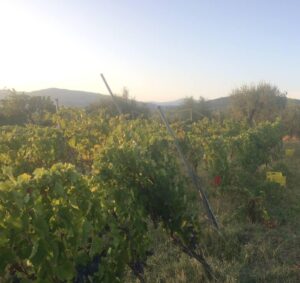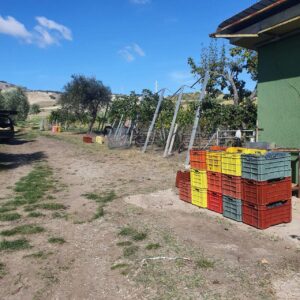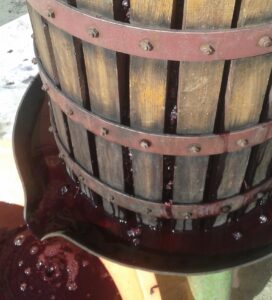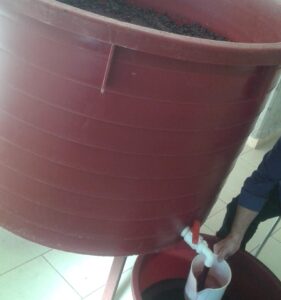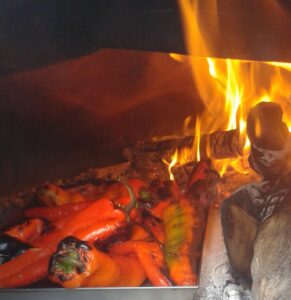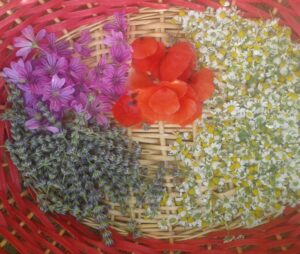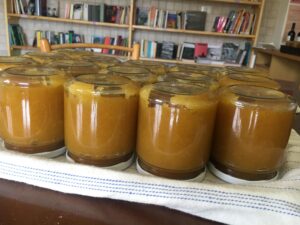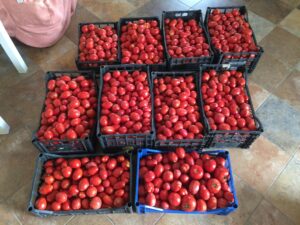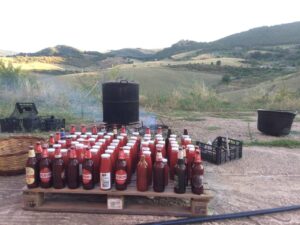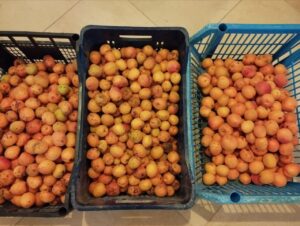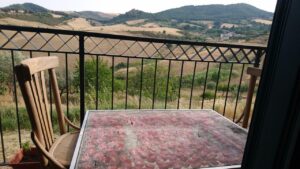One of the main motivations behind Casa Rosa’s project is that of putting in practice experiences of return to land as a choice of life but also as a tool of cultural and social action. We think that land is a common good and we firmly believe in the importance that every person should give to the production of the food one eats everyday.
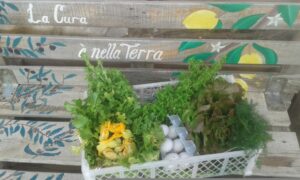 Starting from few knowledges, we have begun a path of research and learning towards a natural agriculture, as much as possible in harmony with the rhytms and the balances of the region we live in. A path aimed also at rediscovering, with help from our neighbours and elders, the traces of a certain peasant tradition. A tradition according to which the human being is not an element alien to the environment surrounding him and whose only goal is that of “extracting” resources from it, but thinking instead that humans are an integral part and that through observation, practice, experience and consciousness they can gain a living without destorying it, but can instead enrich the environment and the landscape.
Starting from few knowledges, we have begun a path of research and learning towards a natural agriculture, as much as possible in harmony with the rhytms and the balances of the region we live in. A path aimed also at rediscovering, with help from our neighbours and elders, the traces of a certain peasant tradition. A tradition according to which the human being is not an element alien to the environment surrounding him and whose only goal is that of “extracting” resources from it, but thinking instead that humans are an integral part and that through observation, practice, experience and consciousness they can gain a living without destorying it, but can instead enrich the environment and the landscape.
Here below are listed some of the self-production activities we are practicing.
Vegetable Garden
One grows up hearing all kind of sayings (“the land is low”, “gardening is a hassle”, etc.) and thus for a variety of reason we end up growing up without knowing anything related to how a tomato grows, what’s the difference between a green and a red pepper and when is the season of what…
But isnt’t the food we eat everyday one of the most important things?
We think it is, and it’s for this reason that since 2021 we have started taking care of a piece of land with the goal of producing the vegetables we bring to the table everyday. And only vegetables, but we have also started planting more trees, bushes and herbs. Starting from zero, inspired by various visions on how to grow vegetables with organic or permacultural practices and without the extensive usage of machines, we keep learning, among constant failures but also successes.
Olive Oil
The territories surrounding us are likely full of many small family-run olive-yards spread all around the countryside, small plots that are not suitable for an industrial olive-oil production. It’s a great feeling when it’s olives seasons, and everywhere you go you find someone busy with harvesting their own olives. Sadly also this is a tradition that’s disappearing. Often for various work commitments, or inexperience, many people don’t manage anymore to take care of their olive-yards, leaving them unharvested and unmantained.
As Casa Rosa we have started a project for taking care of olive-yards. We harvest olives when it’s season, and we are also starting to take care of other olive-yards, studying the modern agroecological practices, from polyconic pruning to tactics like green manure and no-tillage.
Bread
The territory we live in is a territory where durum wheat is at home. Sadly too much. We are surrounded by spans of wheat-fields that go on for hectars, hills that in summer can only resemble desert. All due to a coltivation of a wheat dependent on pesticides and chemical fertilizers, with too much gluten and that often is not even the one consumed locally!
At Casa Rosa we give value, like other projects, to peasant wheat varieties that allow for a better cultivation and a healtier, tastier final product.
And next to wheat, another important element is the sour dough, an ingredient that before was fundamental to make bread, so much so that it was given as a wedding gift and that neighbours exchanged it among them any time someone had to knead.
Now yeast has almost completely replaced it, but one can taste the difference. Sour-dough bread has another flavour and quality.
Taking the bread out of the wood-oven is every time an experience. You take out the resul of a small trip that comes with your skills, your luck, the wether, your emotions but also, above all, the primary ingredients you decide to use.
A small trip that makes you create something completely different from what you normally find around.
Wine
Also that of the vine-yard and of the family-produced “town wine” is a long tradition of these territories. With autumn comes the period of the wine harvest (“la vendemmia”), the period of the fermentation of the grapes, of “mosto” (the fermenting grape juice), of “string’tur’” (the wine coming from the pressed, left-over grapes), of the mosto-cake “pas’canis’c and the moment of tasting the new wine.
Still unexperienced in managing a vine-yard, as Casa Rosa we have started harvesting grapes and producing our own tasteful “town wine”, joy of many of the meals eaten at our table.
Preserves
Tomato sauce, jams, vinegar, pickles, fermented products, sauces, dried fruits and flowers. The preparations that the peasant world has made up in order to store fruits and vegetables are endless. A world of knowledges and preparations that sometimes becomes difficult to re-discover and one can only try to guess the recipe listening to the tales of elder people.
Recipes and preparations that vary from one town to the other, but that can exist similar or completely different (starting from the same ingredients) just on the other side of the sea. A cultural richness that we feel lucky of learning and to which we dedicate various days, learning the traditional recipes but also mixing it with that of other cultures, like the Bosniac Ajvar made with the peppers and eggplants grown in Tolve.
